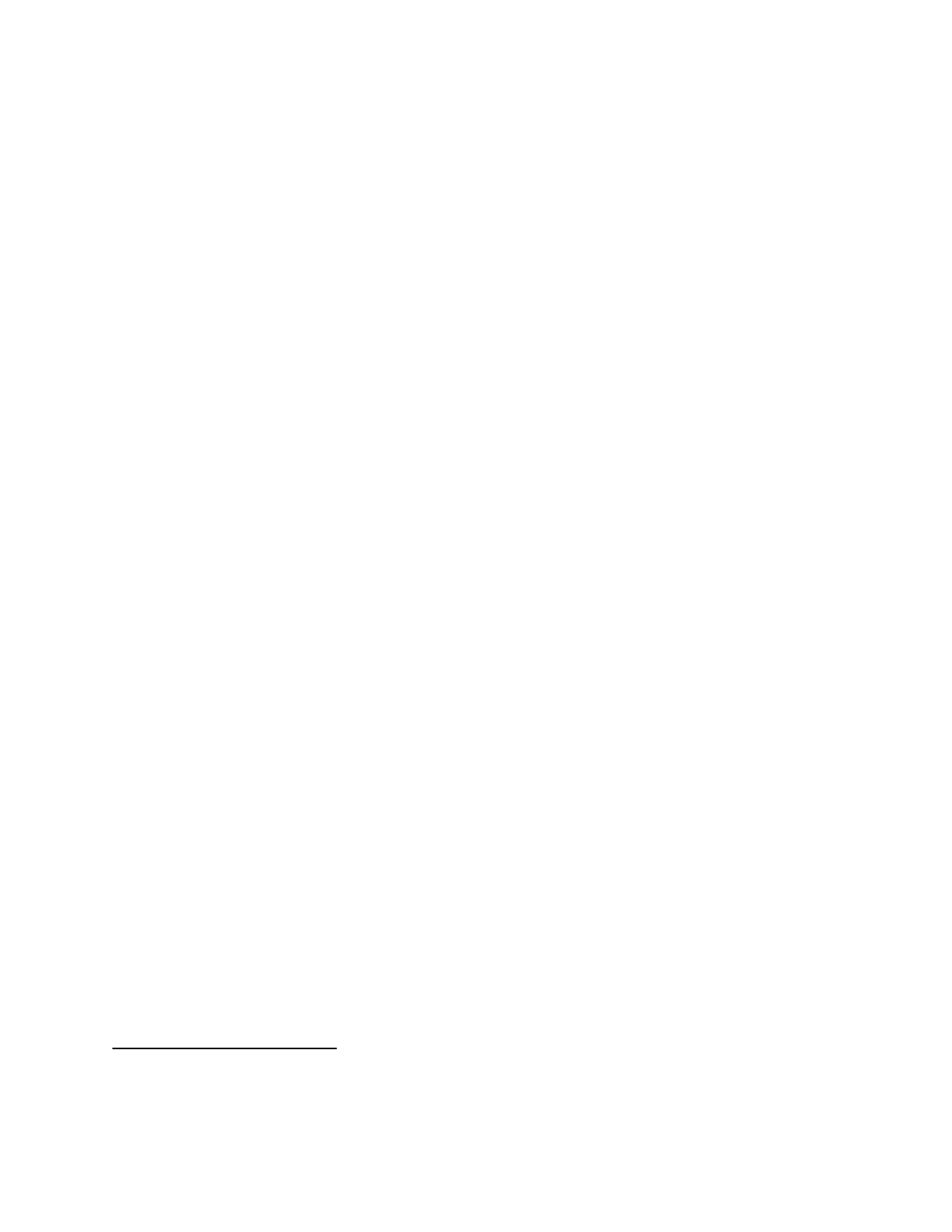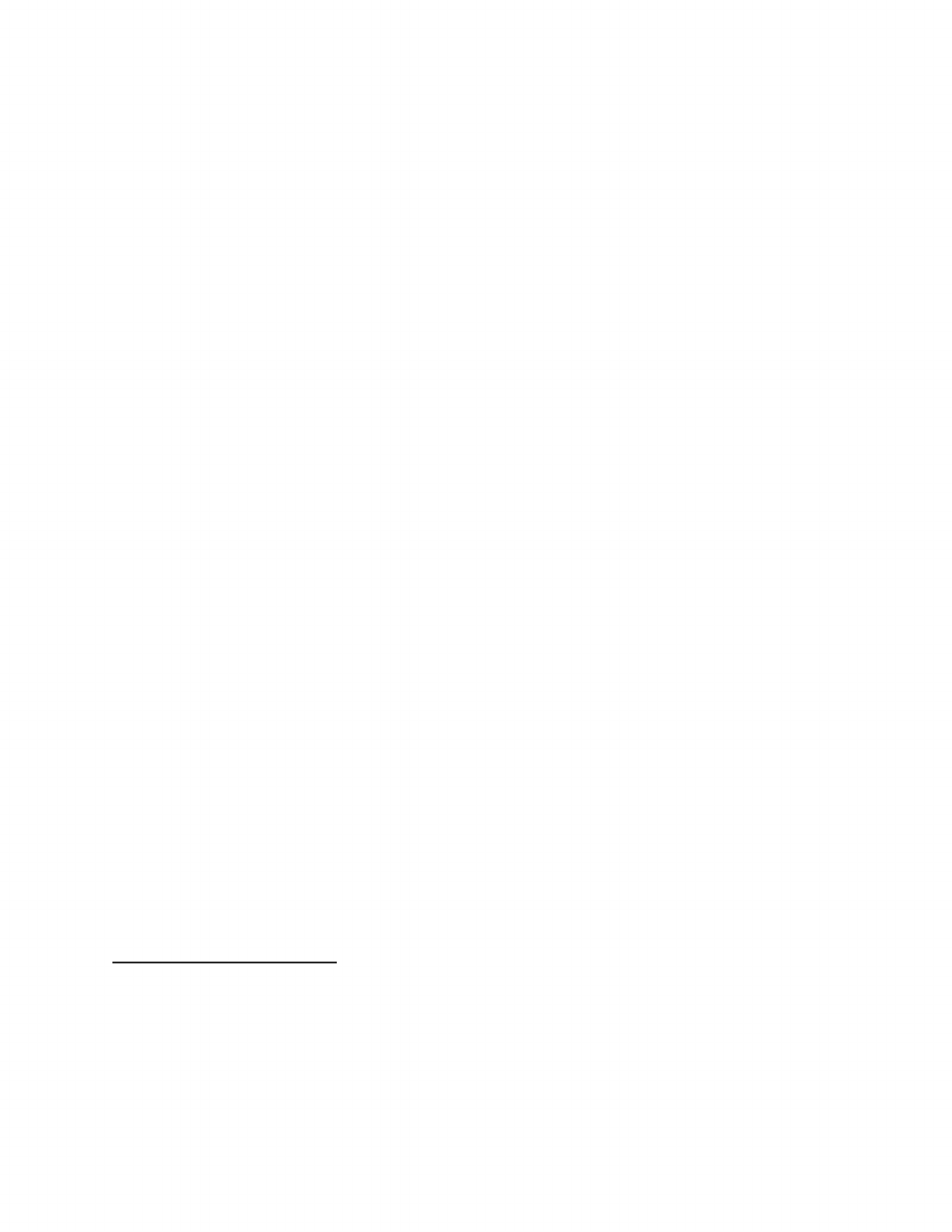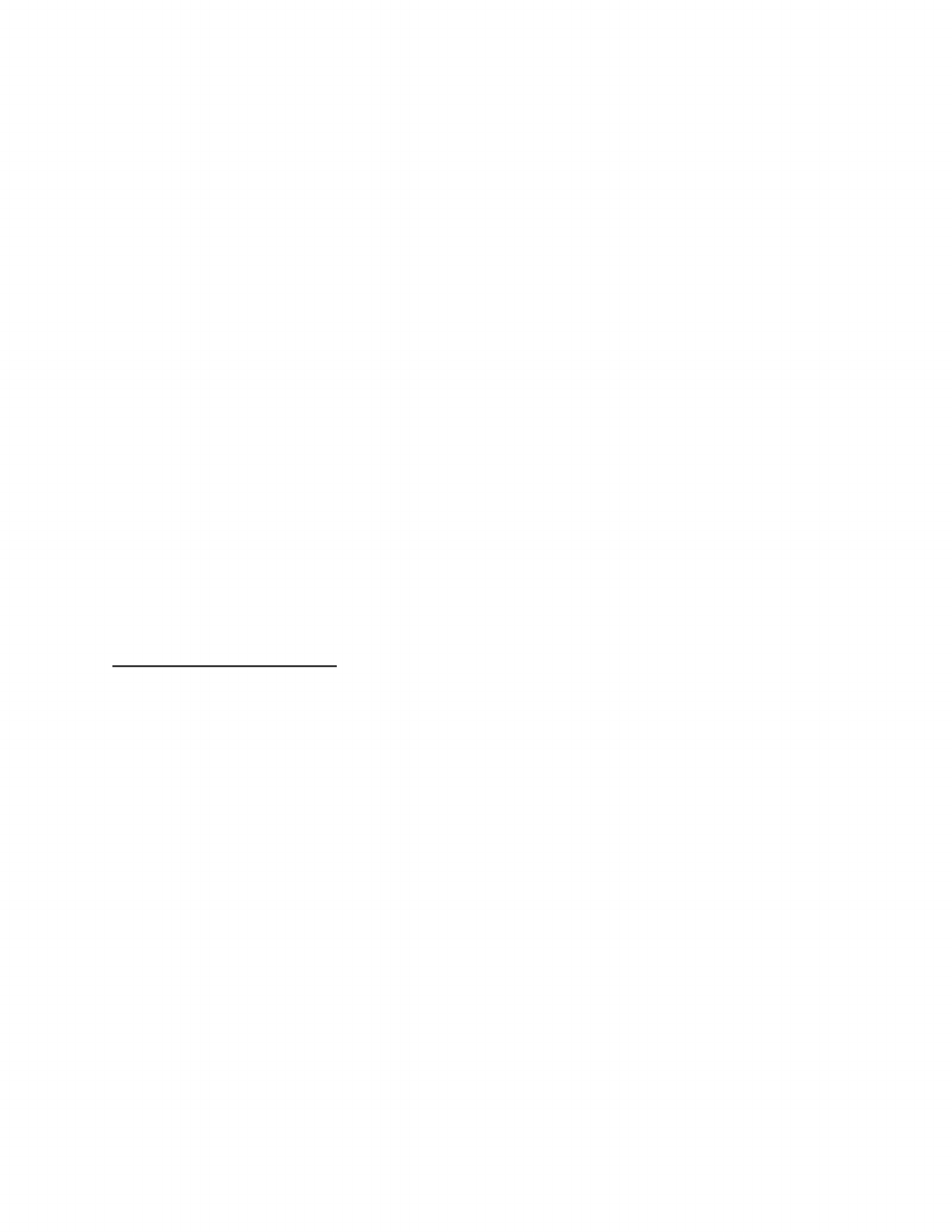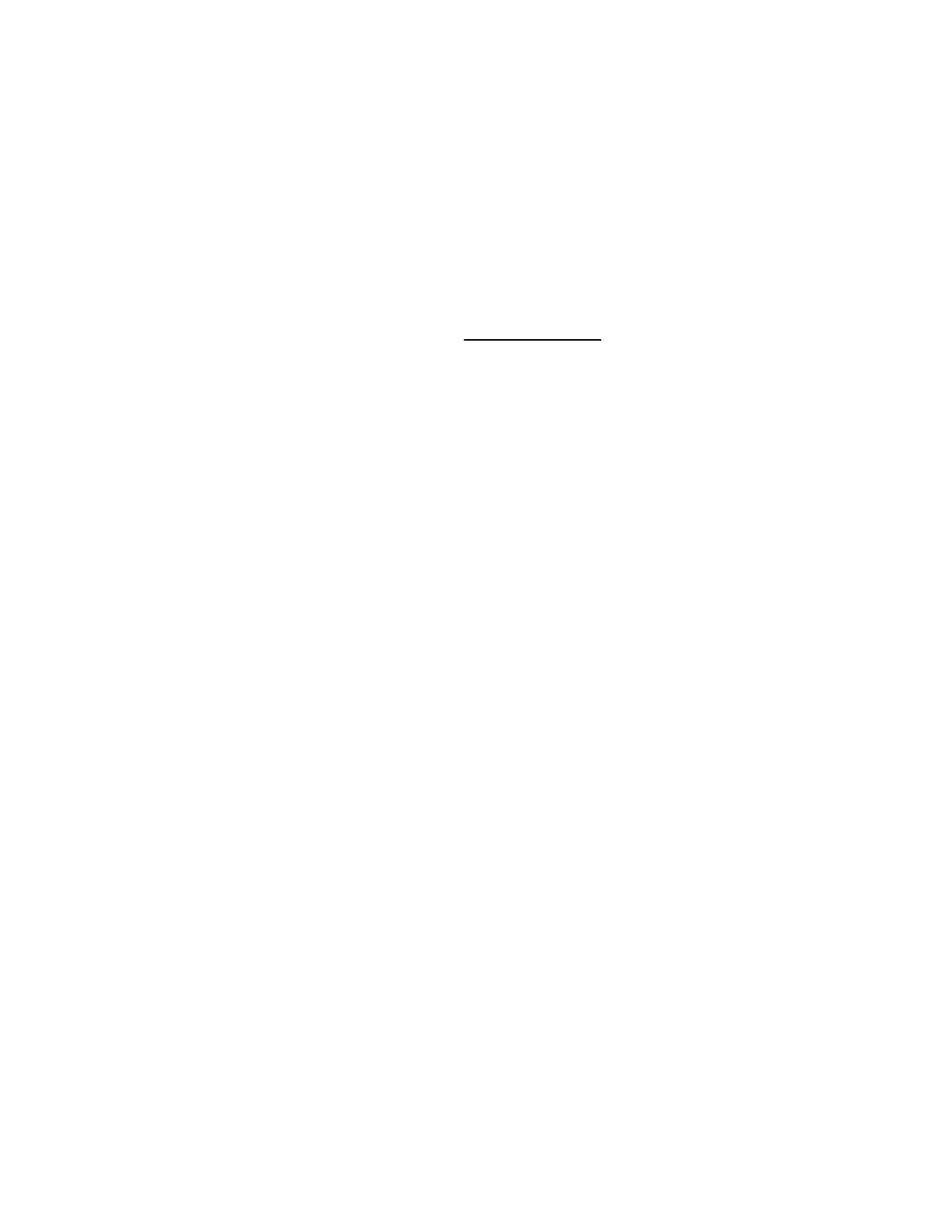
Case 1:20-cv-01174-PLM-PJG ECF No. 17, PageID.619 Filed 12/11/20 Page 1 of 16
UNITED STATES DISTRICT COURT
FOR THE WESTERN DISTRICT OF MICHIGAN
SOUTHERN DIVISION
MICHIGAN ASSOCIATION OF NON- )
PUBLIC SCHOOLS, et al., )
)
Plaintiffs, )
)
v. )
)
) Civil No. 1:20-cv-01174-PLM-PJG
ROBERT GORDON, in his official )
capacity as Director of the Michigan )
Department of Health and Human Services, )
)
Defendant. )
)
__________________________________________)
THE UNITED STATES’ STATEMENT OF INTEREST IN SUPPORT OF PLAINTIFFS’
MOTION FOR TEMPORARY RESTRAINING ORDER AND PRELIMINARY
INJUNCTION
The United States respectfully submits this Statement of Interest pursuant to 28 U.S.C.
§ 517, supporting Plaintiffs’ Motion for Temporary Restraining Order and Preliminary
Injunction. ECF No. 6.
This case involves important questions of how to balance the deference owed to public
officials in addressing a pandemic threatening the health and safety of the public with the
fundamental constitutional right of freedom of religion. While a local government has
significant discretion to decide what measures to adopt to meet a public health threat, the Free
Exercise Clause of the Constitution requires that, whatever level of restrictions it adopts, the
government may not make value judgments that treat religious reasons for gathering worse than
nonreligious reasons for comparable gatherings, absent the government proving that its

Case 1:20-cv-01174-PLM-PJG ECF No. 17, PageID.620 Filed 12/11/20 Page 2 of 16
differential treatment furthers a compelling governmental interest pursued through the least
restrictive means.
The Michigan public health order issued on December 7, 2020, restricting gatherings in
the state, ECF No. 1-11, exempts a range of educational activities that the state deems important
enough to be held in person notwithstanding the health risks, but has failed to exempt religious
educational activities which the Plaintiffs likewise sincerely believe must be held in person. The
state may do this under the Free Exercise Clause of the Constitution, but only if it can
demonstrate that this differential treatment meets the demands of strict scrutiny, which
Defendant has not done at this stage.
INTEREST OF THE UNITED STATES
Under 28 U.S.C. § 517, the Attorney General is authorized to send any officer of the
Department of Justice “to attend to the interests of the United States in a suit pending in a court
of the United States.”
The United States has a substantial interest in the preservation of its citizens’
fundamental right to the free exercise of religion, expressly protected by the First Amendment.
To that end, the United States regularly files statements of interest and amicus briefs on
important issues of religious liberty in courts at every level, from trial courts to the Supreme
Court of the United States. In addition, the Attorney General has issued comprehensive guidance
interpreting religious-liberty protections available under the United States Constitution and
federal law. Federal Law Protections for Religious Liberty, 82 Fed. Reg. 49,668 (Oct. 26, 2017)
(“Attorney General Guidelines”).
The United States also has a strong interest, especially in the midst of the COVID-19
pandemic, in ensuring the development and maintenance of the best possible public health
2

Case 1:20-cv-01174-PLM-PJG ECF No. 17, PageID.621 Filed 12/11/20 Page 3 of 16
strategies to combat the virus and protect the people of the United States from harm. But that
interest must be balanced with constitutional liberties. This case raises issues of national public
importance regarding the interplay between the government’s compelling interest in protecting
public health and safety from COVID-19 and citizens’ fundamental right to the free exercise of
religion.
BACKGROUND
1
The State of Michigan, through its governor and other officers, has issued numerous
orders addressing the COVID-19 pandemic which place various restrictions on the activities of
citizens in an effort to reduce transmission of the disease. See, e.g., ECF No. 1 ¶¶ 46-51, 62.
Most recently, on December 7, 2020, Defendant Gordon issued a “Gatherings and Face Mask
Order”, ECF No. 1-11 ¶ 63, renewing the barring of certain activities completely and placing
restrictions on others. The order prohibits in-person instruction at colleges, universities, and
public and non-public high schools throughout the state, but makes numerous exceptions. In-
person instruction at high schools is permitted for English Language Learner instruction, special
education classes, tutoring and academic support, career and technical classes that cannot be
done remotely, and boarding schools. ECF No. 1-11, 6-7. The order also exempts gatherings
related to college sports as well as college career and technical education activities that cannot be
completed remotely. Id.
Plaintiffs are an association of Michigan religious schools, three Catholic schools, and
parents of students at these schools. The schools’ religious activities vary somewhat in specifics,
see ECF No. 6, 12-14, but each of them believes that multiple religious activities and rites
1
For purposes of this brief, the United States assumes the truth of the facts alleged in Plaintiffs’
Verified Complaint and the exhibits accompanying the Verified Complaint and Plaintiffs’
Motion for Temporary Restraining Order and Preliminary Injunction.
3

Case 1:20-cv-01174-PLM-PJG ECF No. 17, PageID.622 Filed 12/11/20 Page 4 of 16
requiring physical presence are necessary for effective religious education, including daily Mass
and physical receipt of the Eucharist, ECF No. 1 ¶¶ 22, 45, regular Eucharistic adoration, ¶¶ 24,
45, in-person administration of the Sacrament of Reconciliation, ECF No. 1 ¶¶ 23, 26, 45; ECF
No. 1-5 ¶12, and communal prayer throughout the school day. ECF No. 1 ¶¶ 44, 45. Plaintiffs
similarly believe that the physical interactions of the students with the members of the religious
orders that staff the schools, including modeling, spontaneous counseling and religious
discussions, mentorship, and spiritual formation, are integral to students’ religious education.
ECF No. 1 ¶¶ 38-44; ECF No. 6, 12-14. Plaintiffs have a sincerely held religious belief that the
human person is both body and soul and that the practice of their faith necessarily involves
certain physical elements, ECF No. 1 ¶ 25, for example, gathering as the Body of Christ. ECF
No. 1-3 ¶ 22. Plaintiffs thus believe that just as the state acknowledges certain activities cannot
be done remotely, their religious education cannot be done remotely. ECF No. 6, 14.
Plaintiffs filed a complaint in this Court, ECF No. 1, along with a Motion for Temporary
Restraining Order and Preliminary Injunction on December 7, 2020. ECF No. 6.
ARGUMENT
I. There Is No Pandemic Exception to the Constitution
The United States Constitution, including particularly the protections afforded by its Bill
of Rights, protects us at all times. These protections are especially important during times of
crisis such as the current COVID-19 pandemic, when the federal government, the District of
Columbia, and all fifty States have declared states of emergency and have taken unprecedented
4

Case 1:20-cv-01174-PLM-PJG ECF No. 17, PageID.623 Filed 12/11/20 Page 5 of 16
and essential steps to contain the spread of the novel coronavirus and the consequences of the
life-threatening COVID-19 pandemic.
2
The Constitution generally provides for substantial deference to necessary, temporary
measures taken by the government to meet a genuine health emergency. As the Supreme Court
stated in its recent per curiam opinion in Roman Catholic Diocese of Brooklyn v. Cuomo, ___ S.
Ct. ___, 2020 WL 6948354 (Nov. 25, 2020), judges “are not public health experts, and . . .
should respect the judgment of those with special expertise and responsibility in this area.” Id. at
*3. But the Court emphasized that notwithstanding such deference, “even in a pandemic, the
Constitution cannot be put away and forgotten.” Id.; see also id. at *4 (“Government is not free
to disregard the First Amendment in times of crisis”) (Gorsuch, J., concurring); Maryville Baptist
Church, Inc. v. Beshear, 957 F.3d 610, 615 (6th Cir. 2020) (“While the law may take periodic
naps during a pandemic, we will not let it sleep through one”).
Accordingly, the Supreme Court in Diocese of Brooklyn applied traditional strict scrutiny
analysis to New York’s restrictions on worship, evaluating whether they were “narrowly tailored
to serve a compelling state interest.” ___ S. Ct. at *2 (citation and internal quotation marks
omitted). Notwithstanding appropriate deference to health officials and a recognition that
“[s]temming the spread of COVID-19 is unquestionably a compelling interest,” id., the Court
found that the regulations did not appear narrowly tailored and the Court therefore found a
likelihood that plaintiffs would succeed. Id. at *2-3.
At the outset of the pandemic, many courts, including the Sixth Circuit, cited to the
Supreme Court’s 1905 decision in Jacobson v. Massachusetts, 197 U.S. 11 (1905). See, e.g.,
2
See, e.g., Presidential Proclamation, Proclamation on Declaring a National Emergency
Concerning the Novel Coronavirus Disease (COVID-19) Outbreak (Mar. 13, 2020).
5

Case 1:20-cv-01174-PLM-PJG ECF No. 17, PageID.624 Filed 12/11/20 Page 6 of 16
League of Ind. Fitness Facilities and Trainers, Inc. v. Whitmer, 814 F. App’x 125, 127-28 (6th
Cir. 2020) (collecting cases). In Jacobson, in upholding a mandatory vaccination requirement,
the Court observed that “in every well-ordered society charged with the duty of conserving the
safety of its members the rights of the individual in respect of his liberty may at times, under the
pressure of great dangers, be subjected to such restraint, to be enforced by reasonable
regulations, as the safety of the general public may demand.” 197 U.S. at 29.
The Supreme Court’s decision in Diocese of Brooklyn makes clear that the appropriate
test during health emergencies such as the COVID-19 pandemic is traditional constitutional
analysis, including strict scrutiny when it traditionally would be warranted, with the appropriate
deference to the expertise of health officials that is built into strict scrutiny. Indeed, the per
curiam decision in Diocese of Brooklyn did not even cite Jacobson. As Justice Gorsuch
observed in his concurrence:
Jacobson didn’t seek to depart from normal legal rules during a pandemic, and supplies no
precedent for doing so. Instead, Jacobson applied what would become the traditional legal
test associated with the right at issue—exactly what the Court does today. Here, that means
strict scrutiny . . . .
Id. at *5 (Gorsuch, J. concurring); cf. Calvary Chapel Dayton Valley v. Sisolak, 140 S. Ct. 2603,
2605 (Alito, J., dissenting from denial of injunctive relief) (“At the dawn of an emergency—and
the opening days of the COVID–19 outbreak plainly qualify—public officials may not be able to
craft precisely tailored rules,” and so “at the outset of an emergency, it may be appropriate for
courts to tolerate very blunt rules,” but “a public health emergency does not give Governors and
other public officials carte blanche to disregard the Constitution for as long as the medical
problem persists”). While Defendant devotes three pages of his Brief in Opposition to
discussing Jacobson, ECF No. 14, 39-42, the proper test is traditional Free Exercise analysis,
6

Case 1:20-cv-01174-PLM-PJG ECF No. 17, PageID.625 Filed 12/11/20 Page 7 of 16
with its built-in mechanism for consideration of important government interests such as health
and safety, and not a free-standing test derived from Jacobson.
Although the precise application of legal tests such as strict scrutiny may change based
on the specific restriction at issue and the governmental interests justifying it, the bottom line
remains the same: there is no pandemic exception to the Constitution and our fundamental rights.
Individual rights set forth in the Constitution continue to be operative and restrain government
action.
II. Defendant’s Actions Trigger Strict Scrutiny Under the First Amendment’s Free
Exercise Clause
The Free Exercise Clause guarantees to all Americans the “right to believe and profess
whatever religious doctrine [they] desire[].” Emp’t Div. v. Smith, 494 U.S. 872, 877 (1990). It
also protects their right to act on these beliefs, such as through the religious education at issue in
this case. While the protections for actions based on one’s religion are not absolute, id. at 878-
79, among the most basic requirements of the Free Exercise Clause are that government may not
restrict “acts or abstentions only when they are engaged in for religious reasons, or only because
of the religious belief that they display,” id. at 877, nor “target the religious for special
disabilities based on their religious status,” Trinity Lutheran Church of Columbia, Inc. v. Comer,
137 S. Ct. 2012, 2019 (2017) (citation and internal quotation marks omitted); see also Attorney
General Guidelines, 82 Fed. Reg. at 49,672.
To determine whether a law impermissibly targets religious believers or their practices,
the Supreme Court has directed courts to “survey meticulously” the text and operation of a
challenged law to ensure that it is neutral and of general applicability. Church of the Lukumi
Babalu Aye v. City of Hialeah, 508 U.S. 520, 534 (1993). The Court explained: “The principle
that government, in pursuit of legitimate interests, cannot in a selective manner impose burdens
7

Case 1:20-cv-01174-PLM-PJG ECF No. 17, PageID.626 Filed 12/11/20 Page 8 of 16
only on conduct motivated by religious belief is essential to the protection of the rights
guaranteed by the Free Exercise Clause.” Id. at 543; see also Attorney General Guidelines, 82
Fed. Reg. at 49672.
Under the Free Exercise Clause, a law or rule, or the application of a law or rule, that is
not both neutral and generally applicable is subject to heightened scrutiny. Church of the Lukumi
Babalu Aye, 508 U.S. at 531. A law or rule is not neutral if it singles out particular religious
conduct for adverse treatment; treats the same conduct as lawful when undertaken for secular
reasons but unlawful when undertaken for religious reasons; “visits gratuitous restrictions on
religious conduct”; or “accomplishes . . . a religious gerrymander, an impermissible attempt to
target [certain individuals] and their religious practices.” Id. at 533-35, 538 (citations and
internal quotation marks omitted); see also Attorney General Guidelines, 82 Fed. Reg. at 49672.
A law is not generally applicable if “in a selective manner [it] impose[s] burdens only on conduct
motivated by religious belief,” including by “fail[ing] to prohibit nonreligious conduct that
endangers [its] interests in a similar or greater degree than does” the prohibited conduct. Church
of the Lukumi Babalu Aye, 508 U.S. at 534; see also Attorney General Guidelines, 82 Fed. Reg.
at 49672. Thus, for example, in Church of the Lukumi Babalu Aye, the Supreme Court found
that challenged ordinances were not generally applicable when they were “underinclusive with
regard to the [government’s] interest in public health” by outlawing religious conduct but failing
to prohibit various nonreligious conduct that had an equal or greater impact on public health.
508 U.S. at 543-45. In other words, a court must ensure that like things are treated as like, and
that religious gatherings do not receive unequal treatment.
The Supreme Court in Diocese of Brooklyn observed that New York had, in certain zones
under the state’s regulatory scheme, limited places of worship to ten persons while allowing
8

Case 1:20-cv-01174-PLM-PJG ECF No. 17, PageID.627 Filed 12/11/20 Page 9 of 16
businesses deemed “essential,” including chemical and microelectronics factories and
transportation facilities, to operate with no numerical limit. Diocese of Brooklyn, ___ S. Ct. at
*2. This was not, the Court held, neutral and generally applicable. Id.; see also id. at *7
(Gorsuch, J., concurring) (“[T]here is no world in which the Constitution tolerates color-coded
executive edicts that reopen liquor stores and bike shops but shutter churches, synagogues, and
mosques”); id. at *8 (Kavanaugh, J., concurring) (“[T]he state must justify imposing a 10-person
or 25-person limit on houses of worship but not on favored secular businesses”). The Sixth
Circuit reasoned similarly in two cases addressing religious exercise during the COVID-19
pandemic. In Roberts v. Neace, 958 F.3d 409, 413, 415 (6th Cir. 2020) (per curiam), the court
concluded that “the four pages of exceptions” in the COVID-19 orders at issue “and the kinds of
group activities allowed, remove[d] them from the safe harbor for generally applicable laws.”
Likewise, in Maryville Baptist Church, Inc. v. Beshear, 957 F.3d 610, 615 (6th Cir. 2020), the
court determined that “many of the serial exemptions for secular activities pose comparable
public health risks to worship services,” rendering COVID-19 closure orders not generally
applicable.
The challenged order in this case is neither generally applicable nor neutral. The order
implements Defendant’s view that certain important activities cannot be done effectively
remotely: trade and technical education in high schools and colleges, education for younger
children in primary and middle schools, English Language Learner education, special education,
3
3
Defendant argues that the exceptions for English Language Learner and special education
instruction “have no relevance” to Plaintiffs’ challenge, ECF No. 14, 28, since the Plaintiffs
engage in such instruction. This misses the point that Defendant’s permitting these types of
instruction but not in-person religious instruction represents a judgment that Defendant views
these activities as important to permit in person but does not consider religious education held in
person to be sufficiently important. If a health order closed churches but permitted café’s to be
open, for example, it would be of no moment to the question of whether this rule was neutral and
9

Case 1:20-cv-01174-PLM-PJG ECF No. 17, PageID.628 Filed 12/11/20 Page 10 of 16
and college sports. There are undoubtedly good reasons why these activities are more effective
when done in person, or in the case of college sports, can only be done in person. Learning auto
mechanics by watching someone working on an engine on a computer screen is undoubtedly
inferior to hands-on learning. Students learning English undoubtedly benefit from nonverbal
cues that may not translate to a screen, and by the increased focus that comes from being in
person. But while allowing schools to continue such activities if such activities “cannot be
completed remotely,” the state has failed to make any provision for consideration of the religious
need of Plaintiffs for in-person religious education which they sincerely believe cannot be done
remotely. As recounted above, Plaintiffs have explained in their Verified Complaint and
declarations why their sincere religious beliefs require religious education to be conducted in
person.
4
The state has made a value judgment that discounts these religious needs for in-person
instruction, while privileging various other categories of instruction. This is neither neutral nor
generally applicable that a closed church operated an adjacent café that was allowed to remain
open.
4
Defendant asserts in his Memorandum in Response, ECF No. 14, 34, that Plaintiffs are free to
engage in worship activities, pointing to a section of the Order which provides: “Neither a place
of religious worship nor its owner is subject to penalty under this order for allowing religious
worship at such place.” ECF No. 1-11 §10(d). Presumably, then, Defendant is interpreting this
passage, notwithstanding its terms referring only to places of worship such as churches, to other
spaces, such as a gym, assembly room, or auditorium, where students might gather for worship.
Defendant, however, dismisses the other aspects of Plaintiffs religious activities during the
school day that they lay out in detail in their verified complaint and brief, calling any burden on
Plaintiffs’ religion by its barring of such activities “incidental.” ECF No. 14, 34. However, it is
not for Defendant to judge the religious importance of these activities. See Little Sisters of the
Poor Saints Peter and Paul Home v. Pennsylvania, 140 S. Ct. 2367, 2389 (2020) (question is
whether government directive would “cause the objecting party to violate its religious beliefs, as
it sincerely understands them”) (emphasis in original); Burwell v. Hobby Lobby Stores, Inc., 573
U.S. 682, 725 (2014) (“[I]t is not for us to say that [claimants’] religious beliefs are mistaken or
insubstantial. Instead, our narrow function in this context is to determine whether the line drawn
reflects an honest conviction”) (citation and internal quotation marks omitted).
10

Case 1:20-cv-01174-PLM-PJG ECF No. 17, PageID.629 Filed 12/11/20 Page 11 of 16
generally applicable. See, e.g., Blackhawk v. Pennsylvania, 381 F.3d 202, 209 (3d Cir. 2004)
(“A law fails the general applicability requirement if it burdens a category of religiously
motivated conduct but exempts or does not reach a substantial category of conduct that is not
religiously motivated and that undermines the purposes of the law to at least the same degree as
the covered conduct that is religiously motivated.”) (citing Lukumi, 508 U.S. at 543-46).
These facts make this case readily distinguishable from the Sixth Circuit’s decision two
weeks ago in Commonwealth v. Beshear, ___ F.3d. ___ , 2020 WL 7017858 (6th Cir. 2020),
finding that a temporary ban on K-12 school was neutral and generally applicable because it
lacked the number or quality of exceptions the court had seen in cases such as Roberts and
Maryville Baptist. The court held that permission for “small group in-person targeted services”
and “private schools conducted in a home” in the order were insufficient to render the law non-
neutral or non-generally applicable. Id. at *1. By contrast, here the exceptions are numerous,
and full of value judgments about the importance of continuing various activities in person, but
the Defendant refuses to countenance religious claims that in-person religious instruction is
equally important. While the State may be able to engage in such disparate treatment, it must
first demonstrate that its discrimination meets the demands of strict scrutiny. Diocese of
Brooklyn, ___ S. Ct. at *2.
III. The Compelling Interest/Least Restrictive Means Test is a Searching Inquiry
To satisfy the commands of the Free Exercise Clause, a law restrictive of religious
practice must advance “interests of the highest order” and must be “narrowly tailored in pursuit
of those interests.” Church of the Lukumi Babalu Aye, 508 U.S. at 546. “The compelling
interest standard that we apply . . . is not watered . . . down but really means what it says.” Id.
11

Case 1:20-cv-01174-PLM-PJG ECF No. 17, PageID.630 Filed 12/11/20 Page 12 of 16
Prohibiting gatherings to slow the spread of COVID-19 undeniably advances a
compelling government interest as a general matter. The specific question before this Court,
however, is whether denying the Plaintiffs the right to hold in-person religious education in light
of the comparable in-person activities that Defendant has decided the state’s efforts to slow the
spread of COVID-19 can tolerate advances such an interest. “[A] law cannot be regarded as
protecting an interest of the highest order when it leaves appreciable damage to that supposedly
vital interest unprohibited.” Lukumi, 508 U.S. at 547 (citation and internal quotation marks
omitted). In other words, an asserted compelling interest is “fatally underinclusive” when the
“proffered objectives are not pursued with respect to analogous nonreligious conduct.” Espinoza
v. Montana Dept. of Revenue, 140 S. Ct. 2246, 2261 (2020) (quoting Lukumi, 508 U.S. at 546).
Thus a court must consider whether exceptions to a rule are analogous to, or would cause the
same harm to the government interest as, the prohibited religious conduct. This standard is
difficult to meet when “exceptions aplenty” undermine the government’s claim of compelling
interest. Little Sisters of the Poor Saints Peter and Paul Home v. Pennsylvania, 140 S. Ct. 2367,
2392 (2020); see also, e.g., Holt v. Hobbs, 135 S. Ct. 853, 864-67 (2015) (recognizing the
deference due prison officials but holding that other exemptions showed that the prison did not
satisfy strict scrutiny).
Defendant thus must show that the state’s interest in restricting Plaintiffs’ religious high
school education with social distancing, masking, and other protective measures, while allowing
vocational and career education, college sports, and other activities, furthers a compelling
interest. As in Little Sisters, there are “exceptions aplenty,” 140 S. Ct. at 2392, and this requires
the state to show why it has a compelling interest in denying such an exception to the Plaintiffs.
In light of its various exceptions, the State must show that there are relevant differences with
12

Case 1:20-cv-01174-PLM-PJG ECF No. 17, PageID.631 Filed 12/11/20 Page 13 of 16
regard to efficacy in slowing the spread of COVID-19 between allowing the religious schools to
meet in person and allowing other preferentially treated in-person educational activities.
In addition, the Defendant must meet his burden of establishing that his approach is the
least restrictive means of furthering any asserted compelling interest. This is an “exceptionally
demanding” standard, Hobby Lobby, 573 U.S. at 728, requiring the government to show “it lacks
other means of achieving its desired goal.” Id.; see also Diocese of Brooklyn, ___ S. Ct. at *2
(“Not only is there no evidence that the applicants have contributed to the spread of COVID-19
but there are many other less restrictive rules that could be adopted to minimize the risk to those
attending those religious services”); Little Sisters, 140 S. Ct. at 2394 (“If a less restrictive means
is available for the Government to achieve its goals, the Government must use it”) (citation and
internal quotation marks omitted). Here, the school has made extensive representations
regarding the measures it has taken and their success to date. See ECF No. 1, ¶ ¶ 52-61.
Defendant is obligated to explain persuasively why this regimen is insufficient.
Defendant, however, in his response brief, does not address at all whether the order meets
the demands of strict scrutiny. Defendant thus has not, at this stage, carried his burden of
showing a compelling interest in applying the order to these schools, and that this is the least
restrictive means by which to protect such an interest.
CONCLUSION
The United States respectfully requests that the Court consider these arguments in
deciding Plaintiffs’ Motion for a Temporary Restraining Order and Preliminary Injunction. The
facts, on this record, show that Defendant has imposed restrictions on Plaintiffs’ religious
exercise that are not neutral and generally applicable. Accordingly, these actions are unlawful
unless Defendant can demonstrate that the state’s actions satisfy the demanding strict scrutiny
13

Case 1:20-cv-01174-PLM-PJG ECF No. 17, PageID.632 Filed 12/11/20 Page 14 of 16
standard. Defendant has not attempted to make such a showing at this stage. The United States
respectfully requests that the Court find that Plaintiffs have established a likelihood of success
for purposes of this Motion for Temporary Restraining Order and Preliminary Injunction.
DATED: December 11, 2020
Respectfully Submitted,
ERIC S. DREIBAND
Assistant Attorney General
ALEXANDER V. MAUGERI
Deputy Assistant Attorney General
/s/ Eric W. Treene _______________
ERIC W. TREENE
Special Counsel
U.S. Department of Justice
Civil Rights Division
950 Pennsylvania Ave, NW
Washington, DC 20530
202.514.2228
Attorneys for the United States of America
14

Case 1:20-cv-01174-PLM-PJG ECF No. 17, PageID.633 Filed 12/11/20 Page 15 of 16
CERTIFICATE OF COMPLIANCE WITH LOCAL CIVIL RULE 7.2(b)(i)
I certify that the above brief is 4,254 words in length. It was created using Microsoft
Word and the word length was counted with that program.
/s/ Eric W. Treene
Attorney for the United States of America
15

Case 1:20-cv-01174-PLM-PJG ECF No. 17, PageID.634 Filed 12/11/20 Page 16 of 16
CERTIFICATE OF SERVICE
I hereby certify that on December 11, 2020, I electronically filed the foregoing with the
Clerk of Court using the CM/ECF system, which will send notification of such filing to all
CM/ECF users associated with this case.
/s/ Eric W. Treene
Attorney for the United States of America
16
